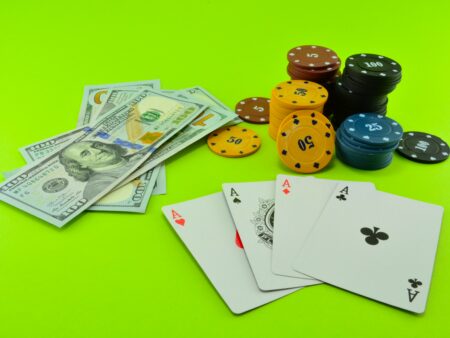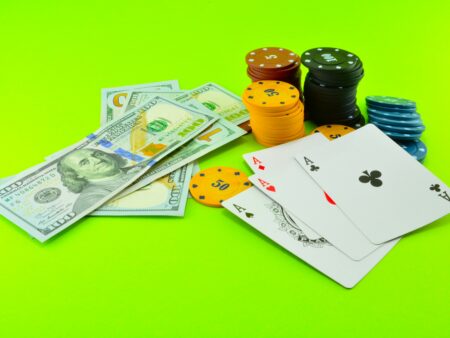Unlock the power of poker psychology and gain a strategic edge. Learn how to read opponents’ tells, master the art of bluffing, and win big at casino poker.
Poker Psychology: Understanding Your Opponents for Maximum Advantage
Just imagine: you are sitting at the poker table, your heart pounding as you watch your opponents’ faces, wondering what they are thinking. Is their hand better than yours? Are they bluffing? In poker, arguably more than any other casino game, your ability to read your opponents’ psychological cues can be your key to success.
The Importance of Poker Psychology
Understanding poker psychology can give you a huge edge at the poker table. No matter how much you master the rules and tactics of the game, if you can’t comprehend the psychology of your opponents and use it to your advantage, your chance of winning big diminishes greatly.
Reading Poker Tells
In the world of poker, a ‘tell’ is a physical or verbal signal an opponent unconsciously gives about the strength of their hand. Mastering the ability to spot these tells can give you a strategic edge over your competitor. Here are some common tells to look out for:
- Eye Movements: Some players can’t help but look longer at strong or weak cards. An initially surprised look can indicate a strong hand.
- Posture: Subtle changes in posture can provide hints about a player’s hand. A player who suddenly sits up straighter may be holding strong cards.
- Nervous Gestures: Rapid blinking, touching the face or neck, shaking hands – these can all signify that a player is nervous about their weak hand.
The Art of Bluffing
Skillful bluffing is often what separates the novices from the poker pros. The knack for misleading your opponents about the strength of your hand is indeed an art. However, it requires understanding your opponents’ minds, controlling your tells, and knowing when and how to bluff effectively.
- Control Your Tells: While learning to read others’ tells, make sure you’re not giving away your own. Practice maintaining a neutral facial expression and body language regardless of your hand.
- Know Your Opponents: Each player has their style and pattern of play. If you can dissect these patterns, you can predict what they might do next, helping you decide when to bluff.
Now that we’ve established the foundation of poker psychology, let’s move further into a more detailed exploration of bluffing. A good bluff can be a powerful tool in poker, often making the difference between a moderate pot and a massive one. Here are some critical aspects to consider:
Committing to the Bluff
If you decide to bluff, you need to fully commit to it. Half-hearted bluffs are easy to pick up on, and your opponents will quickly call your bluff (quite literally!). Make sure to bet appropriately, demonstrating confidence in your hand even when it’s not as strong as you’d like it to be.
Recognizing the Right Players to Bluff
While bluffing is an essential skill, it’s also crucial to identify the right opponents to bluff against. Some players might fold quickly, while others might see through your bluff instantly. Knowing your adversaries can help you make this determination, therefore select your targets wisely.
The psychological play involved in poker makes it unique among casino games, requiring a different set of skills and strategies compared to something more luck-based, like the slots, or even games that employ a combination of chance and strategy, like roulette.
Speaking of roulette, if you’re interested in broadening your casino game acumen, whether you’re a novice looking for basic instructions or an advanced player seeking progressive tactics, you might want to delve into roulette strategies to enhance your winning probability.
Developing Patience and Resilience
Finally, perhaps one of the most underappreciated aspects of poker psychology is developing patience and resilience. Poker games can be long, and they can often be frustrating. Being able to stay calm, focused, and patient, and bounce back from bad hands, is an essential skill to possess. Remember, each hand dealt presents a new opportunity. Don’t dwell on past losses; instead, learn from them and stay focused on the future.
Understanding poker psychology isn’t something that will happen overnight, but with practice and perseverance, you’ll be well on your way to mastering it. It’s a skill that can significantly enhance your game strategy and increase your chances of winning big.
Remember, the fundamentals are key. And once you’ve nailed those, feel free to dive into the deep end. And remember – always play responsibly!
Now it’s time to put these strategies to the test. Ready to take your poker game to the next level? Let us know in the comments how this deep dive into poker psychology helped level up your play. Good luck!










